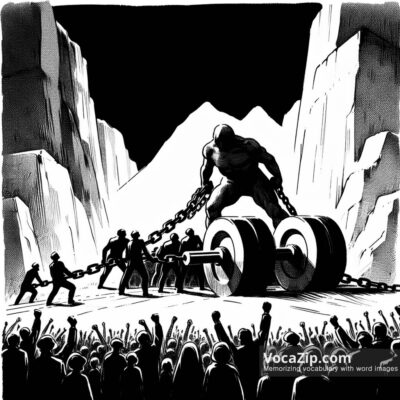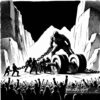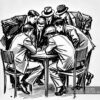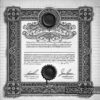oppression meaning
oppression :
unjust treatment, control
noun
▪ The oppression of the workers led to a strike.
▪ The unfair control of the workers led to a strike.
▪ Political oppression can cause unrest.
▪ Unfair political control can cause unrest.
paraphrasing
▪ tyranny – unjust control
▪ domination – control
▪ suppression – stopping
▪ subjugation – taking over

Pronunciation
oppression [əˈprɛʃən]
The stress is on the second syllable 'press' and sounds like 'uh-PRESH-uhn'.
Common phrases and grammar about oppression
oppression - Common meaning
noun
unjust treatment, control
Part of Speech Changes for "oppression"
▪ oppressive (adjective) – causing suffering or hardship
▪ oppress (verb) – to keep in subservience
▪ oppressor (noun) – one who oppresses
▪ oppressively (adverb) – in a burdensome manner
Common Expressions with "oppression"
▪ under oppression – being controlled unfairly
▪ fight against oppression – resist unfair control
▪ end oppression – stop unfair control
▪ suffer oppression – experience unfair control
Important examples of oppression in TOEIC
Vocabulary examples from the TOEIC test
In TOEIC vocabulary questions, oppression often refers to unfair treatment or control by authorities.
Example of a confusing word: depression (a state of low mood)
Grammar examples from the TOEIC test
As a noun, oppression often appears in sentences about unfair treatment or control, needing understanding of context.
oppression
Idioms and fixed expressions in TOEIC
political oppression
'unfair political control', used in discussing government actions.
silence the oppression
means 'ignore the unfair control', used to describe avoiding problems.
Differences between similar words and oppression
oppression
,
tyranny
differences
oppression is the unjust or oppressive use of power, while tyranny specifically refers to cruel and oppressive government rule.
oppression
,
dominance – control to superiority
differences
oppression refers to unfair treatment, while dominance refers to having power or influence over others, not necessarily unfair.
Words with the same origin as oppression
The origin of oppression
The word 'oppression' comes from the Latin 'opprimere', meaning to press down.
Word structure
oppression can be divided into prefix 'op-' (against), root 'press', and suffix '-ion', so it means 'the act of pressing against or controlling'.
Words with the same origin
The root of oppression is 'press'. Words with the same root include 'pressure', 'express', 'depress', and 'compress'.
Please select an image in the quiz
Previous post and next post


reassurance
1058
comfort, confidence
noun ┃
Views 2






